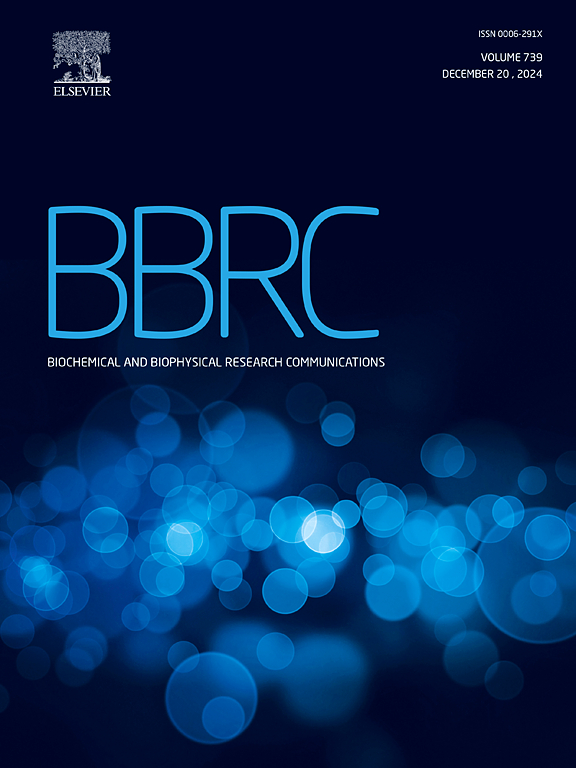Unspliced XBP1 enhences metabolic reprogramming in colorectal cancer cells by interfering with the mitochondrial localization of MGME1
IF 2.5
3区 生物学
Q3 BIOCHEMISTRY & MOLECULAR BIOLOGY
Biochemical and biophysical research communications
Pub Date : 2025-03-11
DOI:10.1016/j.bbrc.2025.151613
引用次数: 0
Abstract
Tumor cells undergo metabolic reprogramming, which makes them tend to utilize anaerobic glycolysis rather than oxidation to rapidly produce energy and intermediate products required for proliferation. In this process, mitochondria inevitably undergo corresponding alterations; however, the specific alterations in mitochondria across different cancer types and the mechanisms governing these changes remain poorly understood. This study demonstrated that unspliced X-box binding protein 1 (XBP1-u) inhibits the translocation of mitochondrial genome maintenance exonuclease 1 (MGME1) into mitochondria by binding to the mitochondrial targeting sequence (MTS) of MGME1. This interaction results in the accumulation of mitochondrial 7sDNA, a reduction in mitochondrial DNA copy number, and a decrease in mitochondrial abundance. Consequently, this shift enhances the production of glycolysis and pentose phosphate pathway intermediates, thereby promoting the proliferation of colorectal cancer (CRC) cells. Our findings elucidated the critical mechanism by which XBP1-u enhances metabolic reprogramming by modulating mitochondrial biogenesis, and uncovered a novel role of MGME1 in the progression of CRC.
求助全文
约1分钟内获得全文
求助全文
来源期刊
CiteScore
6.10
自引率
0.00%
发文量
1400
审稿时长
14 days
期刊介绍:
Biochemical and Biophysical Research Communications is the premier international journal devoted to the very rapid dissemination of timely and significant experimental results in diverse fields of biological research. The development of the "Breakthroughs and Views" section brings the minireview format to the journal, and issues often contain collections of special interest manuscripts. BBRC is published weekly (52 issues/year).Research Areas now include: Biochemistry; biophysics; cell biology; developmental biology; immunology
; molecular biology; neurobiology; plant biology and proteomics

 求助内容:
求助内容: 应助结果提醒方式:
应助结果提醒方式:


